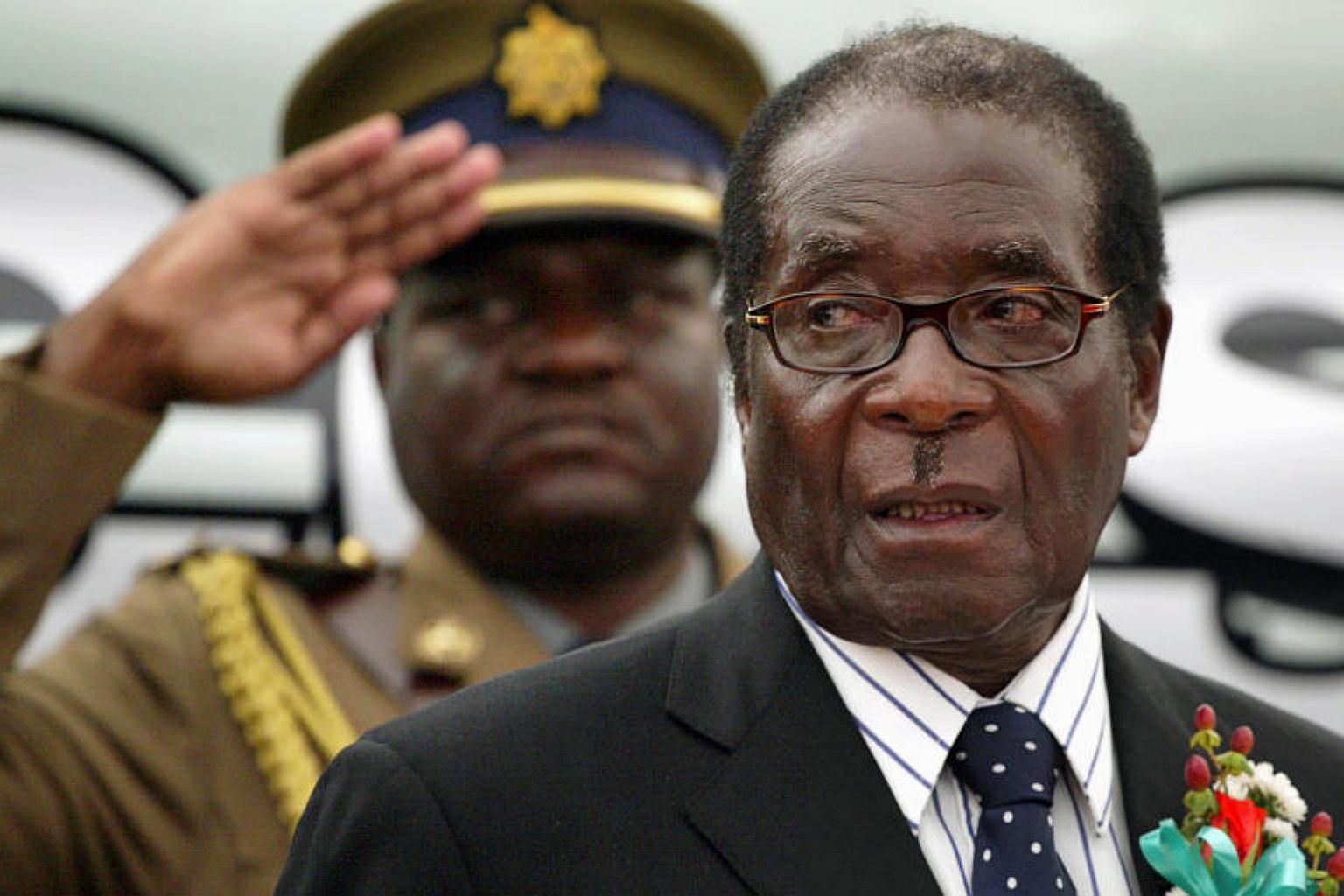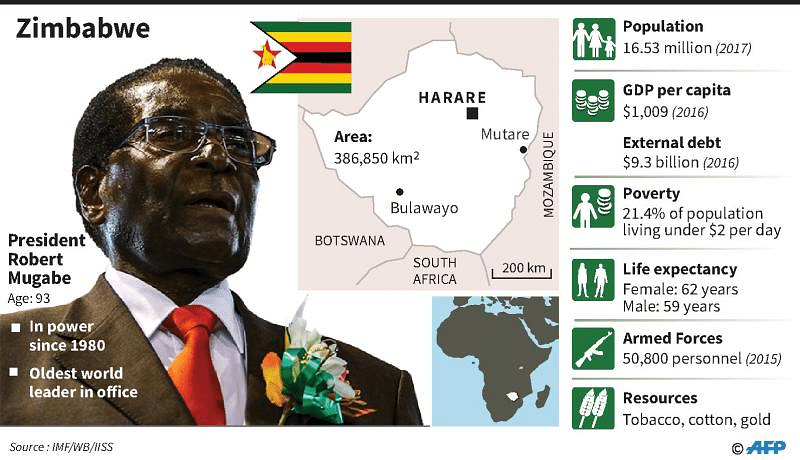From bread-basket to basket case: Zimbabwe's economy in shambles as Mugabe era draws to an end
Sign up now: Get ST's newsletters delivered to your inbox

93-year-old Zimbabwe President Robert Mugabe has ruled since he led the country to independence from white minority rule in 1980.
PHOTO: REUTERS
Follow topic:
HARERE (BLOOMBERG, NYTIMES, REUTERS) - Zimbabwe's military has seized power and detained 93-year-old President Robert Mugabe in a struggle over the succession of the only leader the African nation has ever known.
Mugabe was confined at his home, while Zimbabwe Defence Forces spokesman Major-General Sibusiso Moyo said in a televised address that the military action was "targeting criminals around him who are committing crimes".
The military intervention followed a week-long political crisis sparked by Mugabe's decision to fire his long-time ally Emmerson Mnangagwa as vice-president in a move that paved the way for his wife Grace, 52, and her supporters to gain effective control over the ruling party.
Mugabe has ruled since he led the country to independence from white minority rule in 1980.
Still seen by many Africans as a liberation hero, he is reviled in the West as a despot whose disastrous handling of the economy and willingness to resort to violence to maintain power destroyed one of Africa's most promising states.
The country, while home to abundant mineral resources - platinum, gold, diamonds and nickel - used to be regarded Africa's bread basket.
But a string of disastrous policies under Mugabe have sent it into steep decline.
He led campaigns of repression against opponents and the summary expropriation of white-owned farms, which destroyed the country's export business.

While the farms were meant to be given to black families, though, many wound up in the hands of Mugabe's close associates, and within years a large number had fallen fallow because their new owners had no background or interest in farming.
Today, an estimated 95 per cent of the workforce is jobless and as many as three million Zimbabweans have gone into exile.
The International Monetary Fund and other Western donors have suspended aid to Zimbabwe since 1999 over Mugabe's policies that are blamed for the economic meltdown.
In 2009, the government dumped the Zimbabwean dollar for the US dollar and the South African rand after the national currency collapsed, causing galloping inflation of up to 500 billion per cent.
The crisis had led to mass unemployment - with nearly nine out of 10 of the active population out of work - the collapse of many public services and the increasing scarcity of cash. In October 2017, Zimbabwe banned the import of fruit and vegetables to save its currency.
With an economy that has halved in size since 2000 and relies mainly on the dollar because it has no currency of its own, a severe cash shortage is choking businesses and forces some people to sleep in the streets near banks to ensure they can make withdrawals, which are confined to as little as US$20 (S$27) a day.
Zimbabwe stocks fell the most in two months and bitcoin climbed as much as 10 per cent to US$13,499 on the country's Golix exchange.

